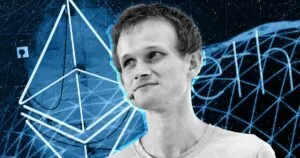Subscribe to our Telegram channel

Vitalik Buterin opposed the introduction of artificial intelligence on the blockchain
Vitalik Buterin, co-founder of Ethereum ETH $3,175.96 Bridged Ether (StarkGate) -0.92% Market capitalization $72.07 million VOL. 24 hours $1.06 billion , believes that developers need to carefully consider the pros and cons of implementing artificial intelligence systems in blockchain-based projects. Buterin emphasized that developers should be especially cautious when creating new applications that involve a significant level of risk and are connected to financial flows.
«It is important to be careful. For example, if someone creates a prediction market or a stablecoin that uses an AI system as an oracle, and it turns out that this oracle can be attacked, a huge amount of money can be stolen in an instant,» the co-founder of the main altcoin wrote.
At the same time, Buterin noted that the use of AI is quite possible. For example, when creating user interfaces, neural network-based assistants will make it easier for users to understand the industry and can also simplify fraud detection.
«I believe that interfaces built entirely on AI are currently too risky, as they increase the possibility of various errors. However, the introduction of AI into more traditional interfaces is quite possible,» the developer writes.
According to Buterin, the most challenging current task for developers is to create a single system that supports AI, blockchain, and cryptocurrencies that other applications can use.
«The most challenging applications are those that try to use blockchain and cryptocurrencies to create a 'single point of entry': a single decentralized trusted AI that other applications will rely on for certain functionality. This raises security issues as well as centralization risks,» Buterin summarized.
As a reminder, on January 3, the Ethereum Name Service (ENS) token soared by 80%. The sudden jump to an eight-month high was triggered by Vitalik Buterin, who publicly praised the crypto asset and urged the community to support his project. The father of ethereum noted that he considers the Ethereum Name Service «crucial.» He emphasized the need for the service to remain accessible and inexpensive for all users of the Ethereum network, especially in the second-level (L2) networks.

